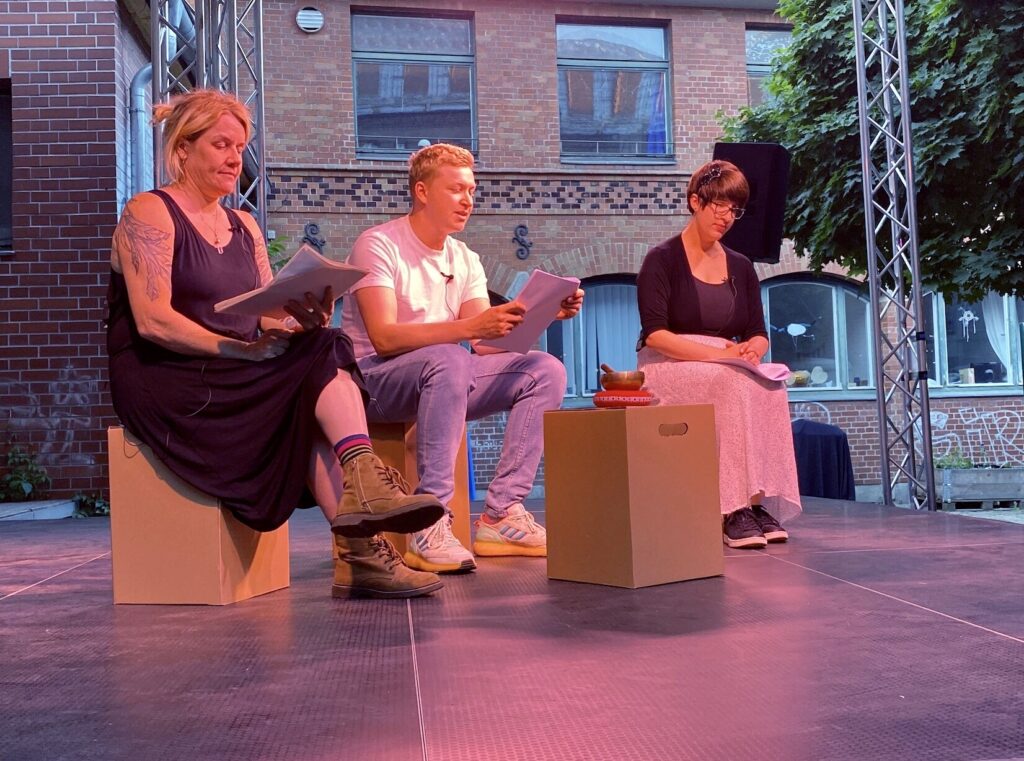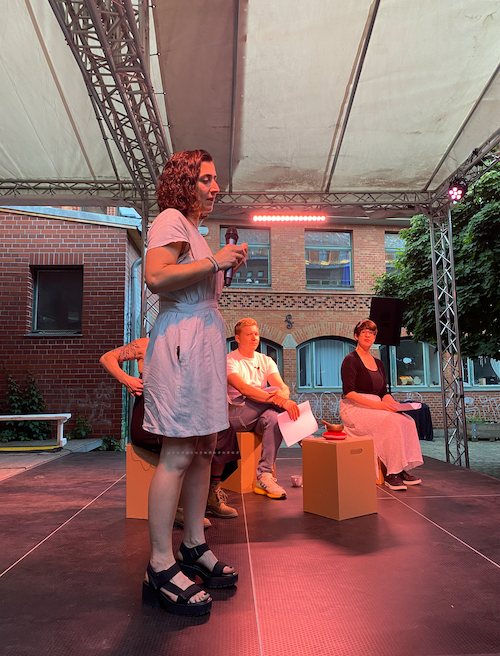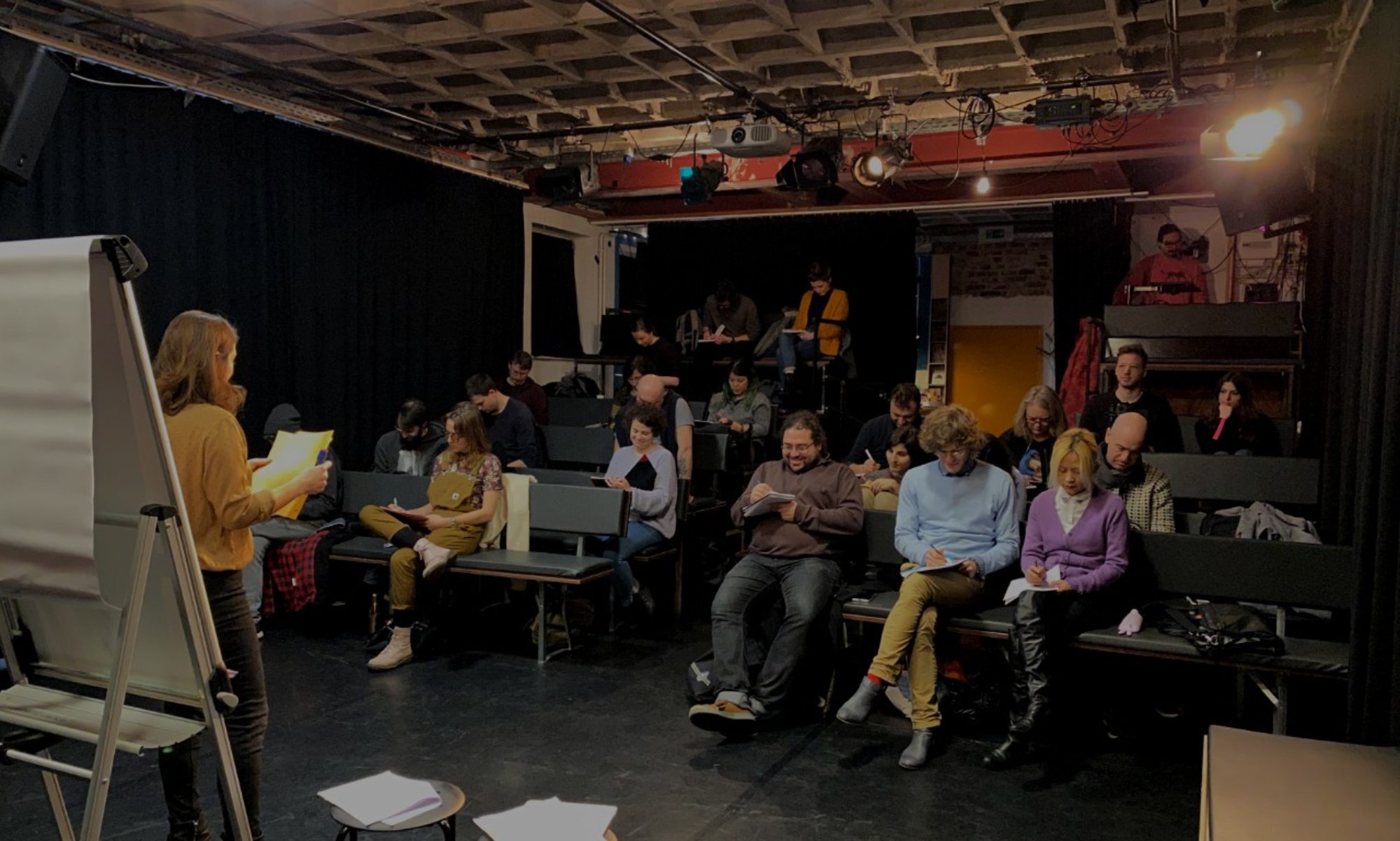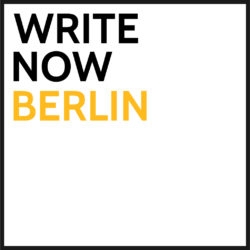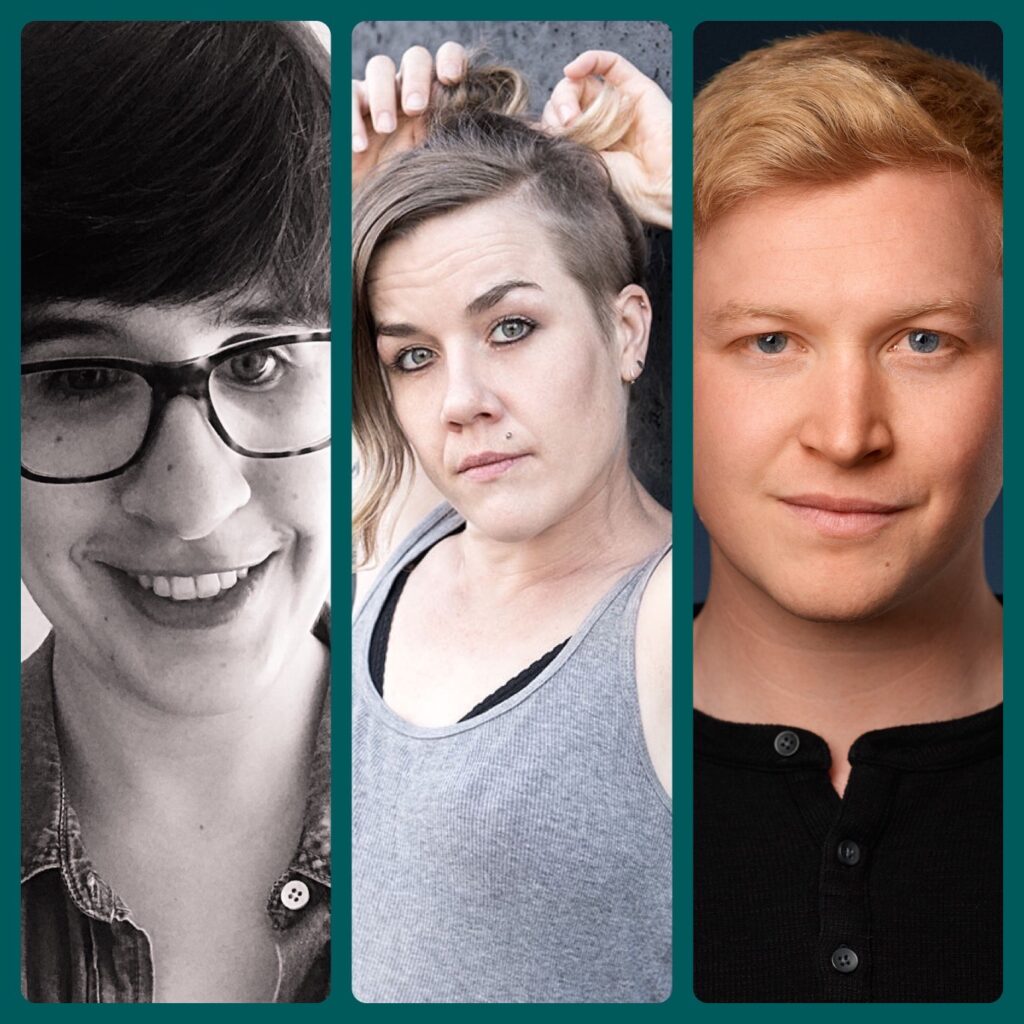It’s true that the text is, in a sense, incomplete until the actors bring it to life on a stage and introduce it to the audience. We presented a collection of our plays at the Kreuzberger HofFestSpiele in June and were very pleased with the reaction we got. The short pieces written in our workshops were not about numbers, facts, or how the world is horribly going to end soon due to the way we consume and choose to live. We mostly focused on personal stories and preferred a humorous tone over a pessimistic one. It’s good to remember how we used to live sustainably back in the days when we were kids. How we used to wear and share our clothes; how we used to mend our belongings before throwing them away and buying a new one; or how our relationship was with nature.
We will continue to write about climate change until the end of the year, and we hope to have more opportunities to share our plays with more people. We are open to collaborations with theatres, schools and or environmental organizations. The challenges we face need collaboration and collective action. We are all part of this story, and if it isn’t going well, we must begin rewriting it.
